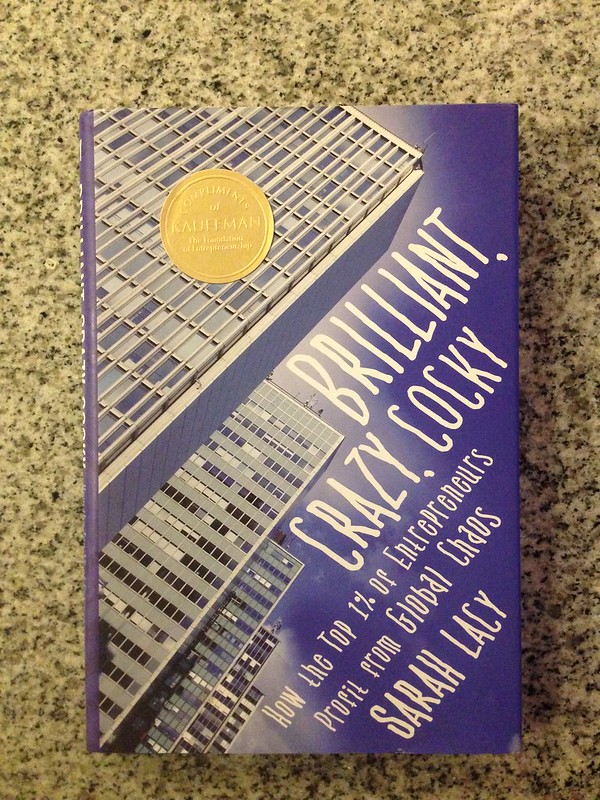Brilliant, Crazy, Cocky by Sarah Lacy
These are the notes I took while reading Brilliant, Crazy, Cocky: How the Top 1% of Entrepreneurs Profit from Global Chaos by Sarah Lacy. While not typically a book meant for taking notes on, there are a few items I wanted to write down for future reference.
Additional notes I’ve taken while reading other books can be found here.
The Death of Risk in America
Both men have a knack for looking at a problem and finding a common sense solution. They are able to tune out every best practice piece of advice that a consultant would give.
The obvious answer is the right one, and no one will persuade them otherwise.
When faced with the concern that shoes were too difficult to purchase online because fit matters and can vary so wildly across brands, Hsieh solved this problem with a common sense solution. Zappos would pay for the shipping and returns so people could order several different sizes, styles, or colors and just send the rest back. He’d even pay to have a UPS driver come to your house to pick the boxes up. He also gave every customer a surprise upgrade to priority shipping. The hidden truth behind Zappos’ nearly $1 billion in gross merchandise sales in 2009 was the fact tha some 40 percent were returns - and Hsieh was fine with that.
Hsieh’s approach solved the customer loyalty problem.
It was a way of constructing a business that no seasoned manager would would have ever allowed, but Hsieh saw this clearly and believed it was the only way to build a billion dollar eCommerce business for the long term.
In the 1800’s, entrepreneurship was focused on lifestyle - make enough income so your children could have more than you did and building something you could own and be proud of.
Small businesses were what the old world entrepreneurs started. Modern entrepreneurs are creating startups - grow fast, get bought die.
China
The Chinese internet is the largest in the world - and only about 20 percent of China is online.
The West fixates on dramas like whether the Chinese government is censoring data on search engines, but most of these kids in Xi’an don’t care. They don’t go to the Web for information; they go to the Web to have fun, be entertained, show off, sound off on message boards, and connect with friends.
Chinese Web companies have benefited from building within constraints. Taobao, an online marketplace owned by Alibaba Group, won where eBay couldn’t, because it created an elaborate network of bike couriers who could deliver goods and accept cash on delivery.
India
Low tech, pooh-poohed SMS generates about $100 billion in annual revenues, where the consume Web generates just $75 billion, and $25 billion of that goes to Google.
